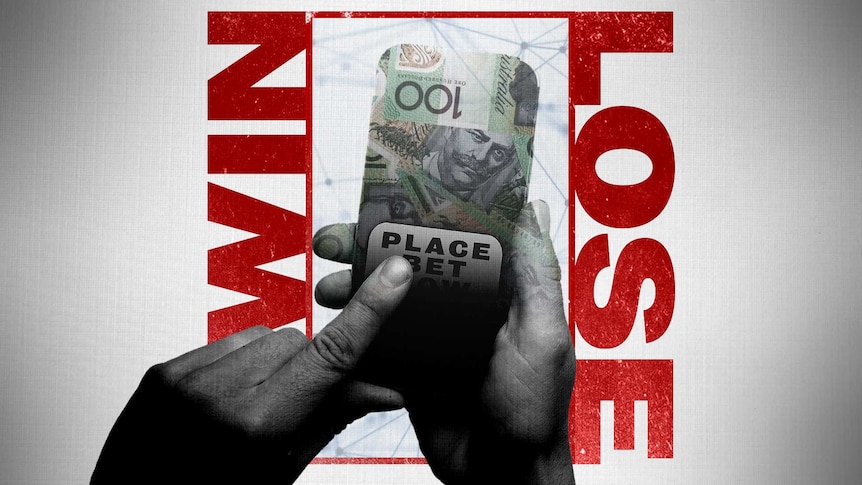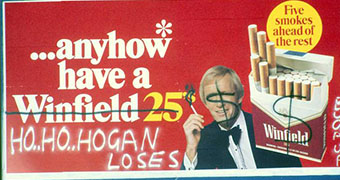Is it just me or is there a proliferation of sports betting advertisements on TV at the moment?
Just for some clarity, I actually counted the number of ads during the Channel 9 news last night. There were ten ads in the hour, five Points Bet, three Ladbrokes and two Sportsbet.
If it was a dedicated sports channeI I wouldn’t blink an eyelid, but primetime news? A friend told me that the Channel 10 news at 5pm receives the same treatment.
No doubt the betting companies are flush with cash after two years of lockdown, so clearly they’ve increased their respective marketing and advertising budgets.
According to Neilsen, a daily average of 948 gambling ads were shown in 2021 on free to air TV in Victoria compared to 374 ads in 2016. An average of 148 gambling ads were broadcast on free to air TV between 6-8.30pm.
(Who cares how they spend their money. It doesn’t affect me)
That’s great, but why do betting companies spend hundreds of millions of dollars on advertising?
The reason is that they absolutely want to influence the choice and decision making of us, the great unwashed.
You don’t have to be someone of an addictive nature to suddenly start downloading a betting app. With this level of advertising saturation that we are experiencing, everyone is vulnerable and the betting companies know it.
According to a lead researcher for Neilsen, Samantha Thomas, “An 8 year old watching AFL footy today, will never had seen a game without gambling ads.”
Another study conducted by Thomas in 2016 reported that 75% of 8-16 year old’s thought gambling was a normal part of sport. The advertising works.
Look what’s available now. Multi’s, cashouts, bet with mates, rewards programs etc are all designed to lure people in, increase betting frequency and wagering amounts, which in turn accelerates revenue for the companies.
Betting companies also bombard you with notifications. (it’s been 10 minutes since your last bet champ!)
It wasn’t always like this.
I’m old enough to remember going into a ‘secondary smoke-heavy’ TAB to place a bet.
They were filled with middle aged punters with Craven A’s or Chesterfields hanging off their lips, staring intensely at cork boards with feet awash in discarded, torn betting tickets.
Punting was for punters. They didn’t want new users taking up what little oxygen was available in their TAB.
The other very real aspect of betting at the TAB was that you used cash. There was the physical sensation of winning and losing cash, not some digital platform that removes the participant from the reality of punting.
Then came pub TABs. This provided the perfect captured audience for a company like Woolworths.
Their arm of pubs run by the ALH group has over 350 hotels and approximately 12,000 poker machines.
You can grab a beer, have a punt, play a pokie and with whatever you have left, buy a takeaway wine cask from the adjacent Dan Murphy’s or BWS to commiserate with when you get home.
(Yeah but you don’t have to gamble mate!)
True, but can you imagine why there was such an uproar with cigarette advertising?
I was a footy and cricket tragic as a kid growing up in WA. Going to Fremantle Oval and The WACA was bliss. More people smoked then and advertising was prevalent whether on TV or signage at the grounds.
I reckon I had my first Benson and Hedges at 14 and finally gave up at age 44 despite having played sport all my life. There were periods when I gave up but as Al Pacino said in The Godfather Part 2, “Just when I think I’m out, they keep pulling me back in.”
Perhaps I’m gullible but I had the same addiction issues with alcohol and unfortunately there are many more just as susceptible as me in society.
I can remember occasionally going to the races for a work function and despite having no interest in racing, still placing ‘get out of gaol’ bets on the Dapto dogs at 5.30pm.
If you are immune to influence and have no addictive qualities then you’re fortunate. Betting companies have no interest in you, other than to have you switch brands.
The rest of us are the sea of potential new users that are open to recruitment.
No more do you have to walk to the local TAB or even to the pub. It’s all there for you on the phone. Even buying smokes meant walking to the milk bar.
We’re a nation of punters of course. The latest research from savings.com is alarming. This data is taken up to 2019 and is based on everyone included, gamblers and non-gamblers.
- Averaged out across all 20 million Australians over 18, we spend $12,000 per person on gambling per annum!
- We spend $11.6b on sports betting ($603 a person per annum).
- The average Australian over 18 is losing $1260 per annum just on gambling.
Betting companies don’t want to have their ads banned because they’ll end up in a participation decline similar to cigarette smokers.
Smoking advertising was banned in 1976 and as a result the percentage of smokers in Australia has dropped from 32% to 11% in 2019 (aihw.gov.au)
Ironically the cigarette companies still make extraordinary profits. They may have lost their influence in the public sphere but because their big cost structures like sales and marketing were made obsolete, they have actually saved money.
(I’ll make my own choices thanks mate)
And so you should. Just don’t try and influence mine with the incessant, unrelenting and interminable advertising that we have to endure, day in, day out.
The biggest problem is the media. Without gambling monies they don’t have the imagination or courage to find another way to survive.
Even when people ring in and complain about the advertising, the so called tough, opinionated broadcasters cower and turn to jelly when questioned about their gambling umbilical cords.
Media companies need to find other pathways to revenue. Most AFL clubs have extricated themselves from the pokies so it can be done.
I don’t have an issue with gambling, just like I don’t have an issue with people worshipping a religion. Just don’t turn up on my doorstep to recruit me every ten minutes. That’s what betting ads feel like.
Like cigarette brands in the olden days, gambling company’s marketers target kids.
Gambling among young people is common. The NSW Youth Gambling Study conducted in 2020 found that almost 30% of kids aged 12 to 17 had gambled in the past year, and they first gambled when they were 11 or 12. 3% to 4% have a gambling problem or are at risk – that’s one kid in every classroom.
This is where betting companies are insidious. Whether its contemporary figures like Shaquille ONeal or some ubiquitous Tik Tok nonenity, they use what’s on trend to target kids.
This is the 60’s and 70’s version of kids starting on the confectionary, Fags then upgrading to packets of Escort 10’s cigarettes, before moving to packets of 20’s or 25’s. These company’s marketers always have a plan.
(Not every kid is an addict)
Of course not, but isn’t it better to remove something potentially harmful from a child? Kids may want to have a bet one day, even a dart and a beer, but let them go and discover it for themselves.
The level of gambling advertising is absurd and infuriating. It’s all about greed and does nothing for the greater good.
As I was drifting off at about 11.30pm last night watching the AFL finals post mortem, an ad came on. My initial thoughts were, “Not another bloody gambling ad”, but instead it was a message from Responsible Wagering Australia.
The ad appeared like a defeated, dishevelled social worker at the end of a ten hour shift, knowing too well that the changing of people’s betting behaviour is against all odds (pardon the pun).
So destructive is the sports gambling obsession in Australia that we need an organisation to turn up when all the betting ads have finished for the day and remind us of how futile your day’s gambling was.
Sadly it’s too late for many.
If you’re in anyway impacted by gambling, there is help available at
Gambler’s Help 1800 858 858




